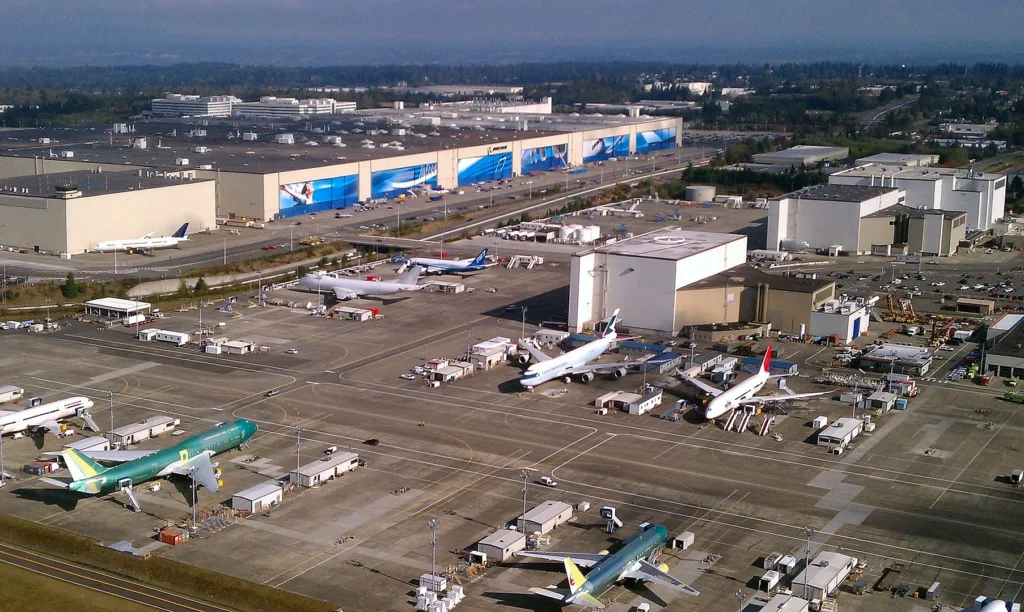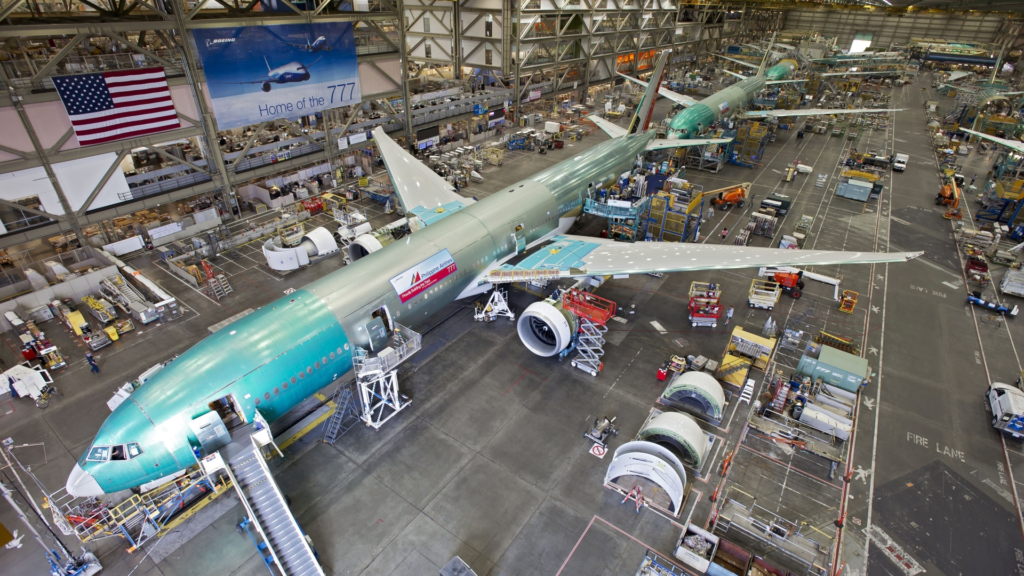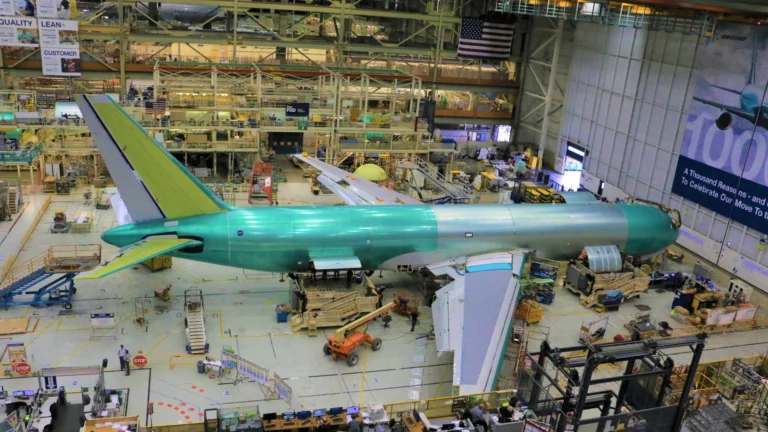SEATTLE- Union workers at Boeing voted Monday to accept the company’s latest contract offer, ending the longest and costliest US strike in over 25 years. The International Association of Machinists (IAM) reported that 59% of members voted in favor of the agreement.
Previously, union members had rejected Boeing’s initial and second offers, with nearly unanimous opposition to the first and a 64% rejection of the second, extending the strike.

Boeing Workers End Strike
The 33,000 union members who have been on strike since September 13 will return to work by next Tuesday.
The new contract includes a 13% immediate wage increase, followed by 9% raises in each of the next two years, and a 7% raise in the fourth and final year. Overall, workers will see their pay increase by more than 43% across the four-year agreement.
The contract includes a $12,000 ratification bonus, with an option for workers to contribute part of it to their 401(k) retirement plans. However, the deal does not reinstate the traditional pension plan removed in 2014, a key sticking point that had fueled worker frustration and contributed to the rejection of Boeing’s previous two offers.
Union leaders had urged members to accept the latest proposal, advising that a third rejection could lead to less favorable terms in future negotiations. The union characterized the agreement as a “victory,” despite only minor differences from the October 23 offer, which members had rejected.

Huge Impact on Production
The nearly two-month strike, which began on September 13, led to combined wage losses of over $600 million for the 33,000 workers, but Boeing’s financial losses are estimated to exceed $6.5 billion, according to the Anderson Economic Group. The broader impact on the U.S. economy is projected at $11.5 billion.
This strike compounded Boeing’s financial challenges, following nearly $40 billion in core operating losses since the 737 MAX grounding in 2019 and 2020.
Despite these strains, Boeing needed to settle the strike to resume aircraft deliveries, its primary revenue source. Deliveries, including the 737 MAX and freighter models, had stalled during the work stoppage, further choking revenue.
The contract underscores the relatively low share of labor costs in Boeing’s production expenses, which are heavily weighted toward raw materials and outsourced components, such as avionics and fuselages, from suppliers.

Largest American Exporter
Boeing, the largest American exporter, remains a significant force in the U.S. economy despite recent challenges. The ongoing strike has disrupted operations for many of Boeing’s 10,000 suppliers nationwide, leading to layoffs across all 50 states.
Boeing estimates its annual economic impact at $79 billion, supporting 1.6 million jobs directly and indirectly, with 150,000 U.S. employees, including the striking workers.
The Labor Department reported that 44,000 jobs were affected in October, encompassing the 33,000 strikers and non-striking Boeing and supplier employees who faced temporary layoffs due to halted aircraft manufacturing.
Airlines are also impacted, as new jet deliveries have been delayed. These delays add to ongoing concerns around Boeing’s quality control, including an incident in January where a missing door plug on an Alaska Airlines jet led to a major safety investigation.
For Boeing’s new CEO, Kelly Ortberg, ending the strike is critical. Ortberg, who assumed his role just five weeks before the strike, aims to “reset” the company’s strained relationship with the union.
Stay tuned with us. Further, follow us on social media for the latest updates.
Join us on Telegram Group for the Latest Aviation Updates. Subsequently, follow us on Google News

